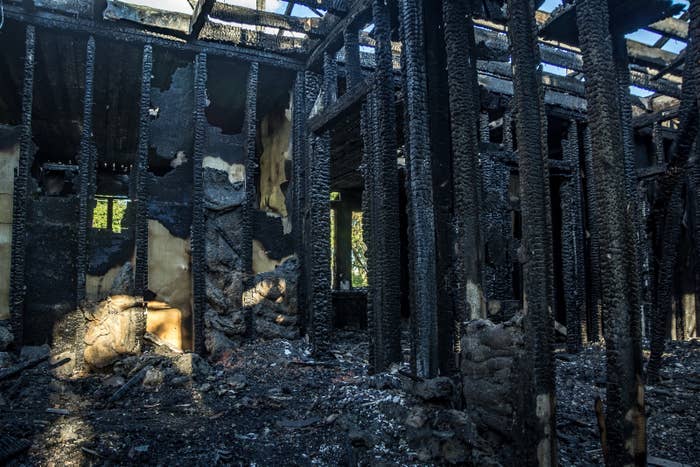
An elderly Australian man who burned down his house the day before it was due to be handed over to his ex-wife in a property settlement has lost an appeal in which he argued he didn't commit any crimes by starting the blaze.
Krste Kovacevski, a Wollongong man in his 70s, and Naumka Kovaceska divorced in 2015 after several years of separation.
On 22 July, 2016, a judge finalised acrimonious property settlement proceedings between the two, ordering Kovacevski to leave the weatherboard cottage in Coniston, a suburb of Wollongong on the New South Wales south coast, where he had lived since 1991 and hand it over to Kovaceska by 5 August.
Kovacevski signed a transfer agreement on 3 August. But just after midnight on the morning of 4 August, he set the house alight and it was destroyed.
According to court documents, Kovacevski confessed to starting the fire when police who attended the scene found him by a garage at the back of the premises.
"I started the fire. I started it in the middle of the house. I used kerosene," he told a police officer.
He was convicted of intentionally or recklessly destroying with fire property belonging either to his ex-wife, or to both him and his ex-wife, and sentenced to two years with a non-parole period of six months in September 2017. However, he was released on appeal bail.
On Monday, Kovacevski's appeal against the decision was dismissed in the NSW District Court by judge Andrew Haesler.
Kovacevski made several arguments on appeal, including that the property did not yet legally belong to his wife because she wasn't yet in possession of the house, and that he had a legal right to burn it down.
"Naumka Kovacevska's ownership of the property, her legal rights to [it], its belonging to her, arose from the handing down of the Federal Court ruling on 22 July 2016," Haesler wrote.
"This concept of belonging was strengthened and confirmed by the execution by the appellant of the transfer document on 3 August 2016."
The decision noted that in NSW people can legally destroy their own property with fire as long as they are not committing any other offence by doing so.
This does not apply to Kovacevski as the house was ruled to belong to both him and his ex-wife at the time it was destroyed.
"[Krste Kovacevski] did what he did so that Naumka Kovacevska would not have the full benefit of the property that belonged to her," the decision reads.
"He was not exercising any genuine belief he had a legal right to do what he did."
Kovacevski also argued that the court attendance notice was invalid because it referred to the "property of" his ex-wife, instead of using the words "belonging to", which appear in the Crimes Act.
Judge Haesler ruled that "property of" and "belonging to" are synonymous phrases.
